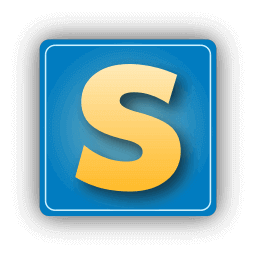
NetBSD is a free, fast, secure, and highly portable Unix-like open-source operating system. It supports various platforms from large-scale servers and powerful desktop systems to handheld and embedded devices.
Its clean design and advanced features make it excellent for production and research environments. The source code is freely available under a business-friendly license.
This operating system is developed and maintained by a vibrant international community. Numerous applications are easily accessible through pkgsrc, the Packages Collection.
NetBSD incorporates an in-kernel packet filtering engine that enables fine-grained traffic control. This engine allows filtering based on various criteria, including interface, protocol, port, type of service (ToS), time-to-live (TTL), source, and destination. By performing these filtering operations within the kernel, NetBSD achieves significantly higher performance.
The NetBSD Project’s goals
A project has no point if it doesn’t have goals. Thankfully, this Project has enough goals to keep it busy for quite some time. Generally speaking:
- Provides a well-designed, stable, and fast BSD system,
- It avoids restrictive licenses and offers a portable system compatible with numerous hardware platforms,
- Interoperates well with other systems,
- Conforms to open systems standards as much as is practical.
In summary: This Project provides a freely available and redistributable system that empowers professionals, hobbyists, and researchers with the flexibility to use it as they see fit.
NetBSD is designed to leverage the power of the latest high-end hardware, including Alpha, PowerPC, and PC systems while maintaining compatibility with older architectures. This remarkable feat is achieved through a meticulous focus on the correct design and clean code, enabling the compilation of a single source tree for all supported platforms. This adaptability also makes NetBSD an ideal foundation for porting to emerging architectures, such as MIPS, ARM, and Super-H, as well as embedded platforms like handheld Windows CE devices.
Main features
This Operating System incorporates a robust suite of security features, including IPsec support for IPv4 and IPv6. Additional security measures include: Veriexec, a file integrity system; kauth, a kernel authorization framework; PaX, a collection of exploit mitigation techniques; CGD, a disk encryption system; and various internal kernel bug detection mechanisms such as KMEM_REDZONE and KMEM_SIZE.
NetBSD is compatible with essential secure network services, including SSH (via OpenSSH) and Kerberos 5 (using the Heimdal implementation). By default, all services are configured with the most secure settings, and none are enabled upon initial installation. This security-first approach minimizes the attack surface and enhances system integrity.
NetBSD pioneered the adoption of IPv6 among free operating systems, boasting an early and standards-compliant implementation. The project continues to work closely with the KAME project to ensure compatibility with the evolving IPv6 specification. Notably, NetBSD was the first free operating system to offer native support for NFS over IPv6, encompassing client and server functionality.
This Linux OS provides comprehensive in-kernel support for NFS, including client and server functionality for NFSv2 and NFSv3 protocols. This robust implementation ensures interoperability with other systems. Notably, NetBSD supports swapping over NFS without arbitrary size limitations on swap partitions. Furthermore, client-side file creation is implemented as an atomic operation, crucial for data integrity, especially on systems lacking robust dot-locking mechanisms.
NetBSD contains a variety of other free software and supports the following network types: ARCnet, ATM, Ethernet, FDDI, HIPPI, PPP – pppd(8), SLIP – slip(8), and Token Ring.
Also supports the following network protocols: Appletalk – atalk(4), ISO – iso(4), TCP/IP (IPv4) – ip(4), TCP/IP (IPv6) – ip6(4).
Supports many platforms, including the popular i386 and amd64, ARM, SPARC, Alpha, Amiga, Atari, and m68k and PowerPC-based Apple Macintosh machines. Technical details for all of them can be found on the official site.

